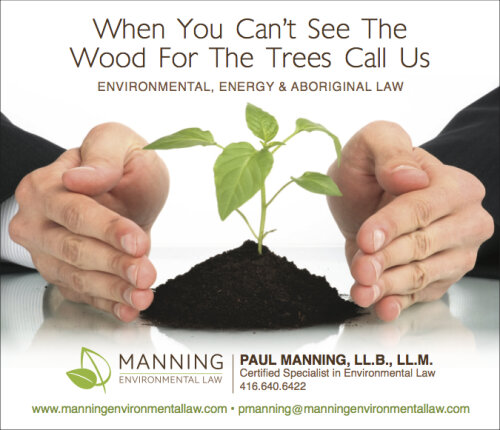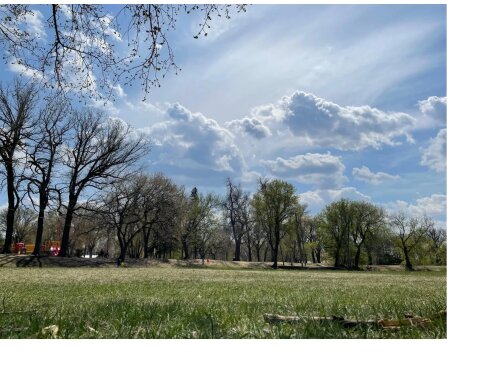Best Climate Change Law Lawyers in Toronto
Share your needs with us, get contacted by law firms.
Free. Takes 2 min.
List of the best lawyers in Toronto, Canada
About Climate Change Law in Toronto, Canada
Climate Change Law in Toronto, Canada refers to the collection of legal rules, policies, and initiatives aimed at mitigating and managing the effects of climate change within the city and surrounding Ontario region. These laws are shaped by federal, provincial, and municipal legislation. The primary objective is to reduce greenhouse gas emissions, promote sustainable development, and guide adaptation to a changing climate. In Toronto, this involves coordination between the City of Toronto, the Province of Ontario, and the Government of Canada, each playing a distinct role in setting and enforcing climate-related standards and regulations.
Why You May Need a Lawyer
Legal assistance in the field of Climate Change Law may be necessary for a variety of situations. Businesses facing compliance obligations, property owners affected by municipal or provincial climate policies, and individuals or organizations involved in climate-related advocacy may all encounter legal complexities. Common scenarios include:
- Understanding and conforming to emissions standards and reporting requirements
- Obtaining or challenging environmental permits for development or industrial activities
- Litigating disputes over liability for environmental harm or failure to comply with regulations
- Advising on environmental due diligence related to property transactions
- Engagement with government programs for climate adaptation or green technology funding
- Participating in public consultations or hearings on climate-related policies and projects
Lawyers help interpret complex regulations, negotiate with governmental authorities, and represent clients in administrative or judicial proceedings related to climate change matters.
Local Laws Overview
Climate Change Law in Toronto is influenced by a combination of federal, provincial, and municipal legislation:
- The Canadian Net-Zero Emissions Accountability Act sets national targets and reporting frameworks for greenhouse gas reductions
- Ontario’s Environmental Protection Act establishes requirements for air emissions, waste management, and land use, all of which intersect with climate change goals
- The City of Toronto's TransformTO Strategy is a framework for achieving net-zero emissions in Toronto by 2040, incorporating municipal bylaws that affect construction, transportation, energy, and waste policy
- Building codes and zoning regulations are increasingly requiring sustainable design, energy efficiency, and climate resilience measures for new and retrofitted properties
- Private entities, such as corporations and real estate developers, may face mandatory climate risk disclosure under federal securities regulation
Understanding how these overlapping laws affect specific projects or activities is key to lawful and efficient operations in Toronto.
Frequently Asked Questions
What is Climate Change Law?
Climate Change Law encompasses the rules, regulations, and policies designed to mitigate and adapt to the impacts of global climate change, addressing issues such as sustainability, emissions reductions, and environmental justice.
Who enforces Climate Change Law in Toronto?
Enforcement is shared between different levels of government. The federal and provincial governments, mainly through Environment and Climate Change Canada and the Ontario Ministry of the Environment, Conservation and Parks, oversee key regulations. The City of Toronto implements municipal climate initiatives and bylaws.
Are there legal requirements for businesses to reduce greenhouse gas emissions?
Yes, certain industries and businesses in Toronto must comply with emissions caps, reporting, and reduction mandates under federal and provincial law. These requirements depend on the size and type of the operation.
Can individuals or groups take legal action for climate change impacts?
Individuals and advocacy groups may bring lawsuits to enforce climate-related laws, challenge government decisions, or seek remedies for environmental harm, though success depends on the legal specifics of each case.
How do climate laws affect real estate and development?
Climate laws may impact site selection, building codes, energy efficiency requirements, and due diligence in transactions. Developers must often plan for long-term climate risks and adhere to sustainability standards.
What penalties exist for failing to comply with climate-related regulations?
Penalties range from warnings and fines to court-ordered remediation and criminal charges, depending on the severity and willfulness of the violation.
Does Toronto have its own greenhouse gas reduction targets?
Yes, through the TransformTO Strategy, Toronto aims to achieve net-zero greenhouse gas emissions by 2040, with interim targets set for earlier dates.
Do property owners need to meet new energy efficiency standards?
Yes, property owners and developers are subject to evolving building codes and retrofit requirements designed to reduce energy consumption and emissions in residential, commercial, and public sector buildings.
Can climate law affect business operations outside traditional environmental sectors?
Absolutely. Climate-related regulations may affect supply chains, product standards, risk disclosures, and investment decisions in a wide variety of sectors, including finance, retail, and manufacturing.
How can a climate change lawyer assist with government funding or incentives?
A lawyer can help identify eligibility, prepare applications, and ensure compliance for grants, incentives, or funding programs designed to support sustainable technology, energy efficiency, or climate adaptation measures.
Additional Resources
Several organizations and government bodies provide helpful information and support regarding Climate Change Law in Toronto:
- Environment and Climate Change Canada
- Ontario Ministry of the Environment, Conservation and Parks
- City of Toronto Environment & Energy Division
- Canadian Environmental Law Association
- Toronto Environmental Alliance
- Law Society of Ontario (for lawyer referrals)
- Federation of Canadian Municipalities - Green Municipal Fund
- Ontario Climate Consortium
These organizations offer guides, referrals, and up-to-date legislative information relevant to climate change issues in Toronto.
Next Steps
If you believe you need legal assistance related to Climate Change Law in Toronto, begin by gathering any documents and information relevant to your situation, such as correspondence, permits, contracts, or plans. Clearly outline your questions or issues before reaching out for legal advice. Consider consulting a lawyer or law firm with experience in environmental and climate change law. You can use legal referral services provided by the Law Society of Ontario to find a qualified lawyer in your area. Early legal advice can help you understand your obligations, identify risks, and develop strategies for compliance or advocacy. It is beneficial to act proactively, as many climate-related requirements and opportunities are subject to specific deadlines and procedures.
Lawzana helps you find the best lawyers and law firms in Toronto through a curated and pre-screened list of qualified legal professionals. Our platform offers rankings and detailed profiles of attorneys and law firms, allowing you to compare based on practice areas, including Climate Change Law, experience, and client feedback.
Each profile includes a description of the firm's areas of practice, client reviews, team members and partners, year of establishment, spoken languages, office locations, contact information, social media presence, and any published articles or resources. Most firms on our platform speak English and are experienced in both local and international legal matters.
Get a quote from top-rated law firms in Toronto, Canada — quickly, securely, and without unnecessary hassle.
Disclaimer:
The information provided on this page is for general informational purposes only and does not constitute legal advice. While we strive to ensure the accuracy and relevance of the content, legal information may change over time, and interpretations of the law can vary. You should always consult with a qualified legal professional for advice specific to your situation.
We disclaim all liability for actions taken or not taken based on the content of this page. If you believe any information is incorrect or outdated, please contact us, and we will review and update it where appropriate.

















